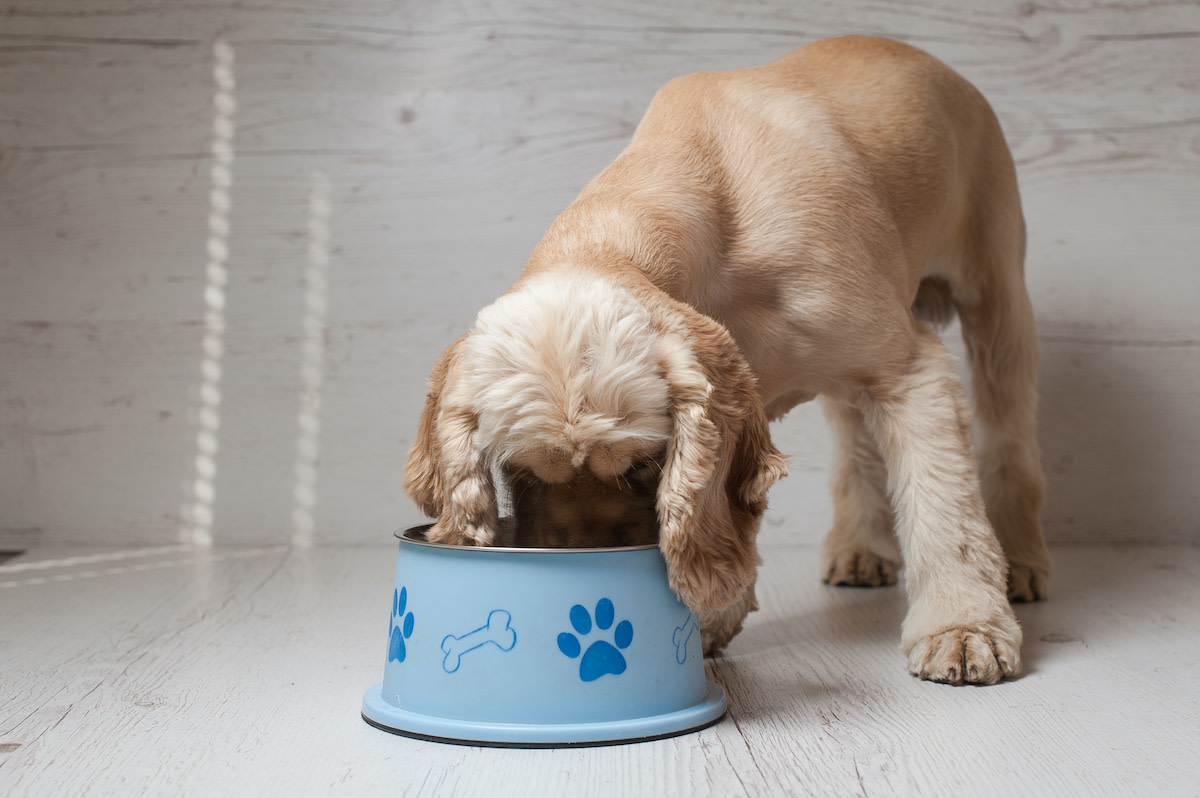Can Dogs Eat Grits? Risks and Benefits of Grits for Dogs
Written by MasterClass
Last updated: Jun 13, 2022 • 3 min read
You can feed your dog grits as a filler with their dog food, but too many servings could lead to your pet developing several health problems. Read on to learn the connection between grits and your dog's health.
Learn From the Best
What Are Grits?
Corn grits and hominy grits are dishes of ground yellow corn kernels or hominy (also known as maize). Ground corn grits have a smooth, mild texture and a bland flavor, which holds other seasonings well. Cooks might include butter, cream, milk, salt, cheese, sugar, cinnamon, or other ingredients, depending on how sweet or savor they want to make the dish.
To make grits, you boil the ground corn in water or another liquid until it becomes thick. Yellow grits is a popular breakfast or appetizer in traditional Southern cuisine in the United States.
Can Dogs Eat Grits?
The main ingredient in grits is corn, which is a dog-safe food. Dogs can typically consume small quantities of plain grits without risking their health—no more than a tablespoon per day for a medium-size dog.
Depending on the exact ingredients you use and your specific pet, the dish could be dangerous for your dog to consume. Ensure the food contains no extra seasonings or ingredients since the simple carbohydrates and toppings in cheese grits, instant grits, and other popular types of grits are bad for dogs.
To avoid any potential health risks—such as poisoning or gastrointestinal upset—refrain from feeding high-risk grits recipes to your dog. Regardless of their nutritional value, human foods should not comprise more than ten percent of your dog's daily diet to ensure they are enjoying balanced nutrition. Never substitute grits for your dog’s regular dog food or kibble.
3 Health Benefits of Feeding Grits to Dogs
Small servings of grits could be good for dogs. Consider these potential health benefits of grits:
- 1. Boosted immunity: When dogs eat hominy (corn), they consume folate and other B-complex vitamins that might combat free radicals in your dog's body. This could help reduce the rate of cellular degeneration in adult canines. Grits also contain leucine and arginine—two amino acids that could play a significant role in cellular health.
- 2. Improved circulatory system: Grits are high in iron, an essential mineral your dog’s body uses to produce red blood cells and maintain a healthy circulatory system. Moderation is key to enjoying these nutritional benefits since adding large amounts of grits to a dog's diet could spike their blood sugar levels, leading to negative health effects.
- 3. Supported eye health: Grits contain lutein and zeaxanthin—two antioxidants that could protect your pet’s eyes from free radicals, helping them maintain their eyesight as they age.
3 Health Risks of Feeding Grits to Dogs
Corn being the main ingredient in grits does not necessarily make all grits safe for dogs. Dog owners interested in feeding grits to their dog should consider the potential health issues this pet food supplement can cause. Negative outcomes include:
- 1. Gastrointestinal upset: Unsafe seasonings on grits could wreak havoc on a canine's digestive system. Furthermore, your dog could have a corn allergy, which might present as an upset stomach. Common symptoms of gastrointestinal upset include a lack of appetite, vomiting, and diarrhea.
- 2. Obesity: Consuming excessive carbs regularly could lead to your pet experiencing rapid weight gain. Obesity can increase your dog's chances of developing dangerous conditions like diabetes and pancreatitis.
- 3. Sodium-ion poisoning: Grits is a typically salty dish, and too much salt consumption can be hazardous to your pet. Ideally, feed your dog only plain grits and no more than a single small spoonful per serving. Monitor them closely afterward for unusual behavior. Common symptoms of salt poisoning can include lethargy, frequent thirst and urination, and, in extreme cases, tremors or seizures.
Before Sharing Human Food With Your Pooch
Certain human foods and beverages can cause adverse reactions in canines, so always consult your veterinarian to determine whether it is safe to add these items to your pet’s diet. This article is for educational and informational purposes and is not a substitute for medical or dietary advice.
Want to Learn More About Training the Goodest Boy or Girl?
Your dream of having a dog who understands words like “sit,” “stay,” “down,” and—crucially— “no” is just a MasterClass Annual Membership away. The only things you’ll need to train up a well-behaved pup are your laptop, a big bag of treats, and our exclusive instructional videos from superstar animal trainer Brandon McMillan.
